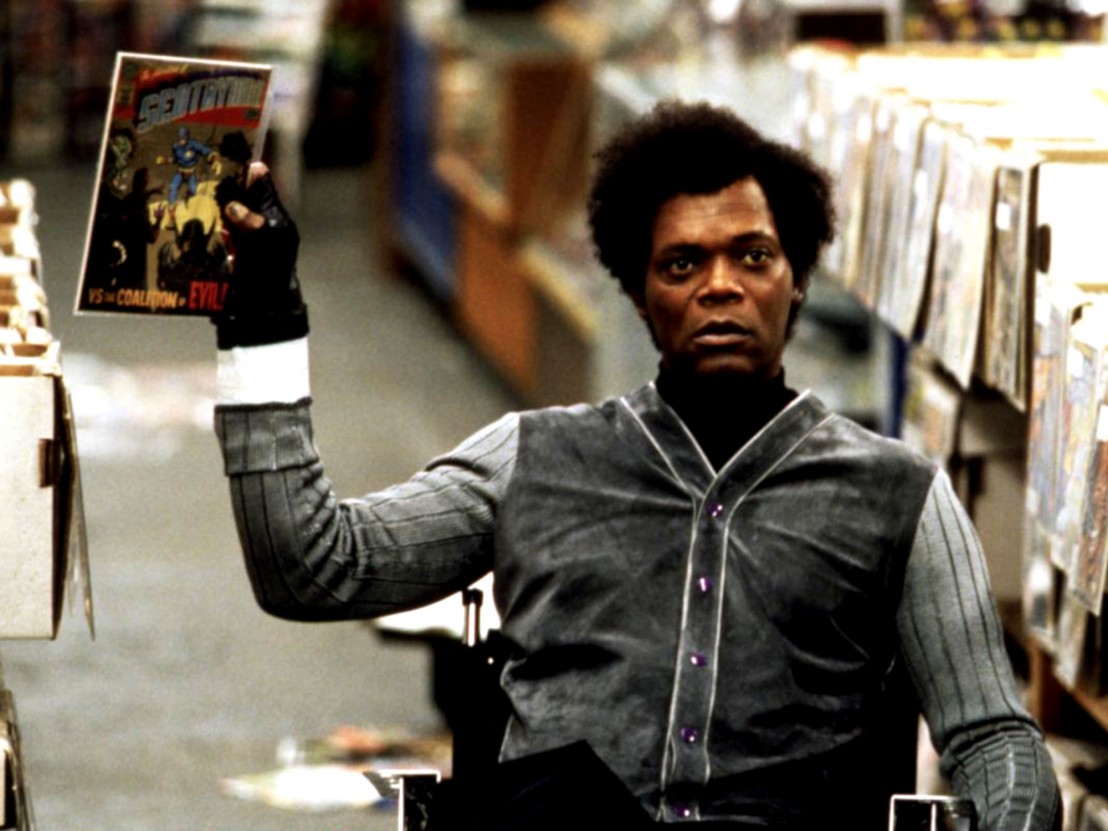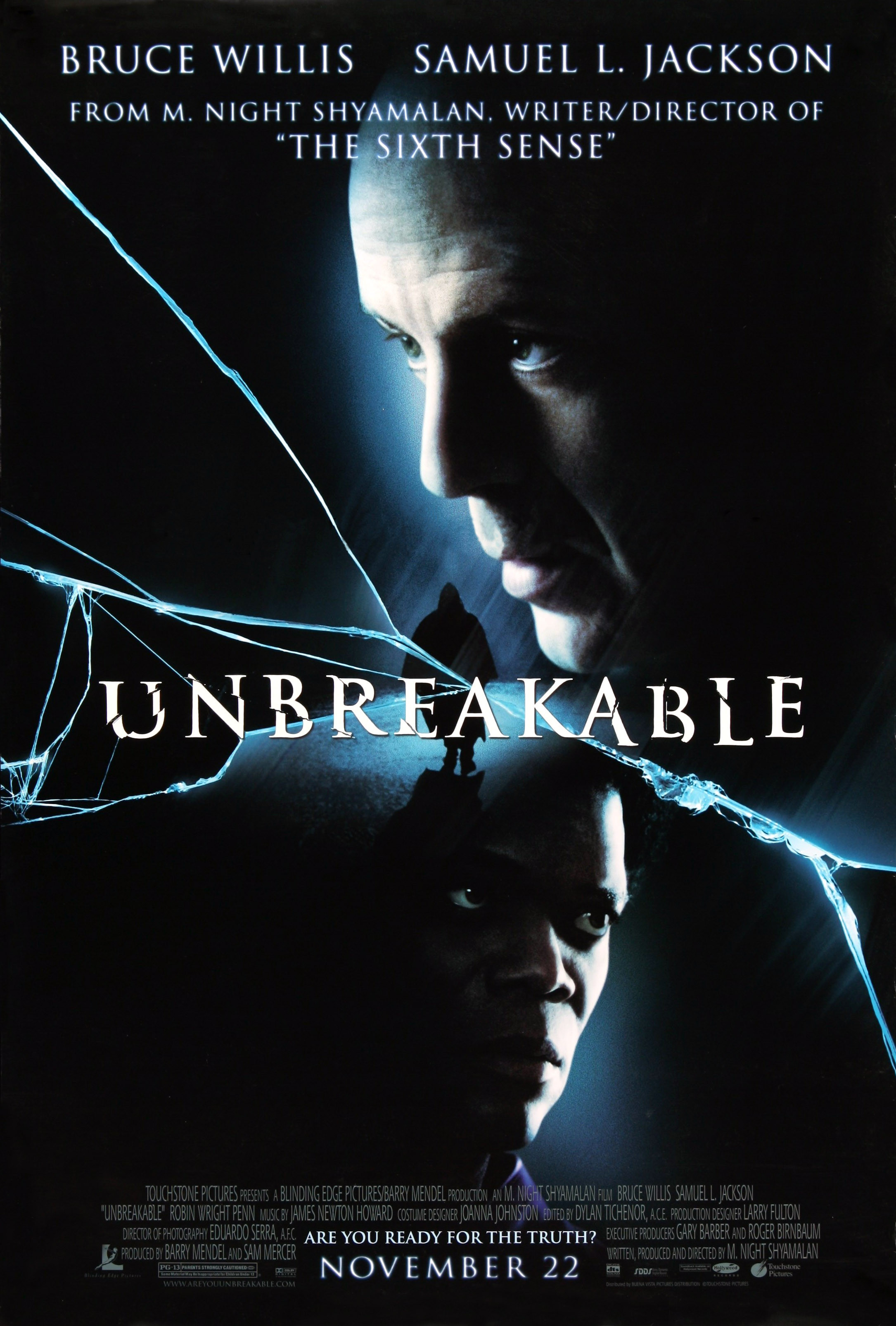— Aʟʟ ᴏᴜʀ Pᴀsᴛ Rᴇᴠɪᴇᴡs —
a review by the Crow.
(polished up and curated by by the Azure-Winged Magpie)!
Editor’s note (because I can DO THAT now)!:
This review is a “remake” of a review from the Crow’s old blog which I totally know the name of but I’m not telling you because of… reasons…
……………………………………………………………………..(◔ ◡ ◔✿) …
He was polishing it up so we could drop it before we went and saw Glass (still waiting on a call for that one). But because he’s away, I jumped in to help finish it! Don’t worry though. I haven’t mucked around with it too much. I just put in a few lines at the end is all. He was mostly done anyway.
Now over to the Crow!
— sᴇᴇ ᴏᴜʀ ʀᴇᴠɪᴇᴡ ꜰᴏʀ Sᴘʟɪᴛ ʜᴇʀᴇ —

Dᴏ ʏᴏᴜ ᴋɴᴏᴡ ᴡʜᴀᴛ ᴛʜᴇ sᴄᴀʀɪᴇsᴛ ᴛʜɪɴɢ ɪs?
Tᴏ ɴᴏᴛ ᴋɴᴏᴡ ʏᴏᴜʀ ᴘʟᴀᴄᴇ ɪɴ ᴛʜɪs ᴡᴏʀʟᴅ, ᴛᴏ
ɴᴏᴛ ᴋɴᴏᴡ ᴡʜʏ ʏᴏᴜ’ʀᴇ ʜᴇʀᴇ
— Uɴʙʀᴇᴀᴋᴀʙʟᴇ —
SPOILER LEVELS at MAJOR
[ THIS REVIEW CONTAINS SPOILERS FOR SPLIT ]
I mentioned in my previous review of Split (which sorely needs an update) that I’ve had a very “hit-and-miss relationship” with M. Night Shyamalan. However, thinking back to that sentiment, I’m going to have to explain myself a little better.
The truth is: I only liked Unbreakable. The Sixth Sense is a fine movie by most metrics, but nothing special, in my eyes; and Signs was a bit subpar to me, although I appreciate what it tried to do. I can see why the two movies are considered good works of cinema, but fail to see what makes them “great”.
The Village started out interesting enough, then became one of the stupidest things I’d ever seen, before utterly failing to make use of a much superior twist-in-waiting that had already been set up in the narrative. (Consider that all I intend to ever say about that movie.)
The rest of his work can jump in a fire, for all I care. The Village was the last of his works I saw in cinemas (or at all) until 2017. And up until I watched Split, Unbreakable was the only Shyamalan movie I truly liked.
Starring Bruce Willis as David Dunn, and Samuel L. Jackson as Elijah Price, Unbreakable is the only superhero movie I can name that is distinctly not a superhero movie, and yet turns out to be one of the better examples of the genre. And the element of it’s “secret formula” that enables it to be so is that it’s an original idea not sourced from an existing intellectual property (IP).

Elijah Price was born in 1961 in Philadelphia. And at the moment of his birth, it was discovered that most of his bones were broken.
He suffers from the rare “Type I” Osteogenesis (OI) imperfecta (otherwise known as “brittle bone” disease). And as he grows up — mocked and ridiculed by his peers for his unfortunate condition, with only comic books to seek solace in — he becomes enamoured of the idea that where he was born to “break”, someone “out there” must have been born “Unbreakable”.
(As CinemaSins would say: Roll credits!)
And this someone comes in the form of David Dunn: a security guard who is the sole survivor of a NYC train crash — an incident which claimed the life of all 131 others who were on-board the train at the time, but leaving not one scratch on him.
They meet, and Elijah presses upon Mr Dunn the idea that he is a superhero — or at least the kind of person upon whom superheroes in comics are based. Dunn is wary of Price’s enthusiasm (as is his wife Audrey, played by Robin Wright Penn), but slowly — due to a combination of Price’s continual “pep talks”, his young son Joseph (Spencer Treat Clark)’s quick acceptance of the idea, and his own tests to put a number on his limits — he begins to wrestle with the idea that Price might be right.
And this — really — is the meat of the movie: an origin story. Most superhero origin stories are told rather quickly (Spoilers follow): The Waynes are gunned down, the kid who would be Spider-Man is bitten, Tony Stark is ambushed, Eric and Shelley’s home is invaded (of course I had to), so on and so forth — but they rarely take up much of the run-time. Sure, it usually takes the length of a complete feature-length movie for the superhero to truly be established as a “hero” (or similar public figure), but this is usually dealt with by the hero battling a villain who defines them in a very literal sense; and at least twice. The hero and the villain interact only a little, with their battles defining the hero’s growth into their “public” identity.
In Unbreakable, however, the entire run-time is the hero’s growth, leading up to the first — and only — conflict with the “villain”.

The “public identity” is achieved near the climax of the movie, yes. There is a “battle with the villain”, yes. But all of these things are played with. One could easily restructure Unbreakable into a “standard” superhero movie, if given a few minutes, but this is where the movie’s mastery lies.
This is not a superhero movie. This is an origin story. And yes. There’s a difference.
Unbreakable is not just the story of David Dunn becoming a hero (or accepting he is one). It’s also the story of Elijah Price’s journey to achieving his status as a “super-villain“. And it’s in the way that Price is handled behind the scenes, and how he — in turn — handles Dunn in front of the “cameras” (in this case: the “public eye”), that the movie’s mastery lies.
One can always argue that it is the villain who defined the hero. I use the past tense because things have changed, lately, especially in light of the work done in the Marvel Cinematic Universe, of late. Tim Burton turned the Joker into the killer of Thomas and Martha Wayne. Sandman (Thomas Haden Church) is revealed to be the killer of Uncle Ben in Sam Raimi’s Spider-Man 3. Obidiah Stane is revealed to be behind the detainment of Tony Stark in Iron Man. And so on and so forth.
However, in Unbreakable, the villain truly defines the hero. The villain crafts the hero like the mentor or the preliminary battles in these stories usually would. In order to find his place as a villain, the villain literally creates the hero.
And this is what we never see coming. Watching the movie a second time reveals all the little bits of foreshadowing that have been scattered through the story. And, of course, all of it comes crashing through the door in the movie’s final line, when Dunn realises what Price has done (which — I contend — is one of the finest “ending lines” in all of cinema history):
You know why, David?! Because of the kids. They called me Mr Glass!
— Elijah Price, Unbreakable

Unbreakable plays with the fabric of superhero movies, and being released in 2000 — a year that saw X-Men released in the summer preceding it — hurt the movie somewhat. The lack of an existing tapestry of superheroes in cinema also hurt the movie, but in hindsight shows the movie to be not just far ahead of its time, but also a superior work than most movies of the like can even aspire to be.
I called 1994’s The Crow brilliant as well (no bias there, none at all), but where The Crow was a movie which predicted — and maybe even established parts of — the structure of modern superhero movies (along with Tim Burton’s earlier Batman movies), Unbreakable deconstructs the structure in a way that no movie has since done, or even tried to do (movies like Kick Ass and Super don’t come even close as far as this argument goes, although they share elements of the “deconstruction”).
The movie uses visual language to great effect, and it is underplayed (for purposes of the twist). The movie uses its tropes cleverly: playing them straight and subverting them very consciously to play on both sides of the standard superhero set-up we’ve come to know so well. This is a movie unafraid to flaunt the comic books superheroes come from in our faces, and it even deals with the idea that a superhero exists in a much more satisfying way than most movies do (with the exception of the Sam Raimi Spider-Man series, and Christopher Nolan’s The Dark Knight series, which is soon to appear on The Corvid Review). The messy, imagined drawing of the “Man in the Rain Coat”, should really be one of the best superhero reveals in the history of the genre.
The realism of the movie is an element that makes it better. While this realism is broken by the central “gimmick” in Split as far as the series is concerned, it doesn’t affect Unbreakable, and would lead to a few very interesting scenes in the upcoming Glass, I’d argue.
[Text stops here. Cotd. down below by the Azure-Winged Magpie!]

The Azure-Winged Magpie: The Crow left the post pretty much finished, but I wanted to say a few things as well.
I like Unbreakable too! But I don’t really think it’s one of the best superhero films of all time. It’s a good film, but I really don’t see it being a realy “superhero” film. It’s the same reason I don’t think the other two films he mentioned (Kick Ass and Super) are superhero films. And we both agree that The Dark Knight doesn’t really count as one either.
But you COULD call it one I guess. It’s just a really good film, but I think it could’ve looked better. I don’t know if it was a budget thing or something like that but it really doesn’t look like a film that was made in 2000 (or 1999 or whatever). It just looks really… 90s? I mean that’s not a problem or anything, but I just thought Shama–llama–ding-dong (watch that last video! I never knew QT thought that way!) woulda had buckets of cash after The Sixth Sense!
It’s just a real good film and we’re both recommending it here on The Corvid Review! But I guess if you’ve got this far, you’ve already seen it.
So… uh. Watch it again…?
Azure-Winged Magpie up! Up! And Awayyy! *BONK!*

— Fɪɴᴀʟ Rᴀᴛɪɴɢs —
— ᴛʜᴇ Cʀᴏᴡ: 8/10 —
— ᴛʜᴇ Aᴢᴜʀᴇ-Wɪɴɢᴇᴅ Mᴀɢᴘɪᴇ: 7.5/10 —
Here’s the official poster:

Here’s some fun art too!:

Art by Matt Ryan Tobin (check out Matt’s website here)

3 thoughts on “ Analysis / Review: Unbreakable [2000]; Shyamalan’s Best Work, and One of the Greatest Superhero Movies Ever Made ”